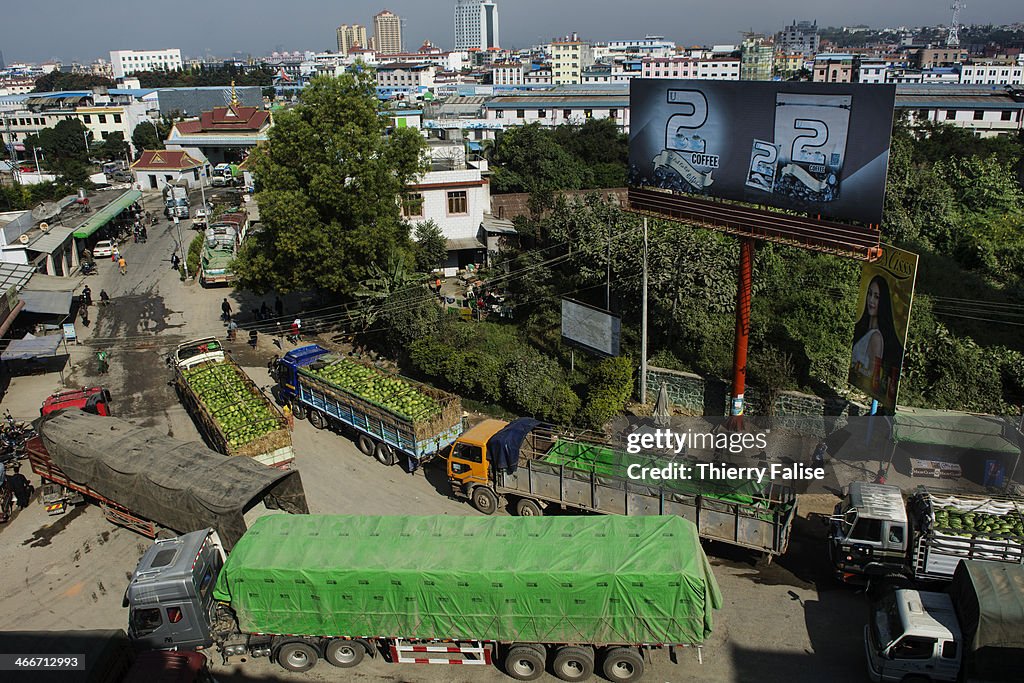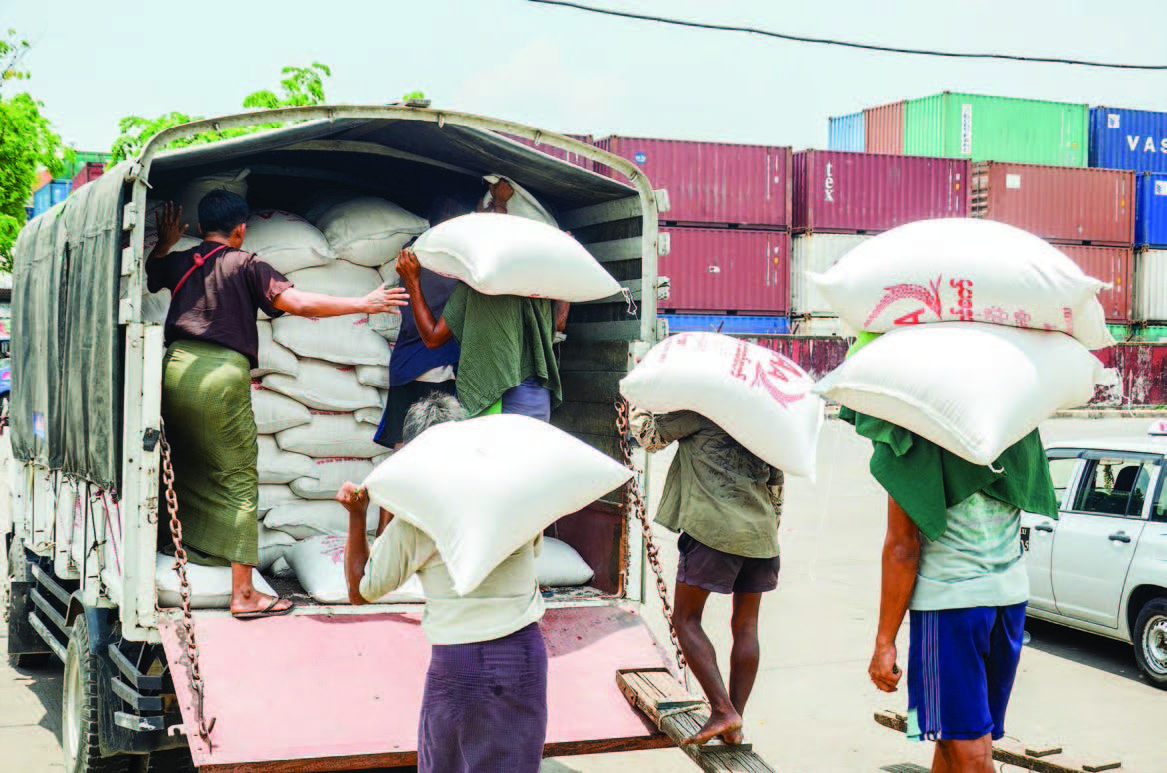CNI News
17 December 2023
In spite of having to exchange 50 percent of the export earnings to Myanmar kyats at the price designated by the Central Bank of Myanmar in the past, only 35 percent must be exchanged at present.
So, the export sector will improve, said traders.
Relaxation of export policy like that would make the export sector better, U Thant Zin Tun, vice chairman of the Myanmar Corn Industrial Association, told CNI News.
" It's better. 65 percent of the export earnings is spent for import and 35 percent must be exchanged to Myanmar kyats. There will be further relaxations. But the government hasn't announced it officially. Exports will be able to be exported more." he said.

While seeing trucks loaded with watermelons heading to China
Exporters of rice, bean and corn have been currently allowed to import fuel by the Ministry of Commerce. In the same way, exporters of rubber have been allowed to import necessary products and fertilizer reportedly.
Exporters have earned more and more profits after the export policy was relaxed, an official from the Myanmar Rice and Paddy Traders Association, told CNI News.
" Exports will increase a bit and so will rice. Because more foreign currency is earned, exporters have increased a bit. Our reserve supply of rice has dwindled a bit.
When the new rice comes out, they give priority to export because they earn more export earnings. At the same time, domestic rice prices have gone up a bit." he said.
Because the policy relating to export earnings has been relaxed, the prices of bean, pea, rice and corn have gone up a little in the domestic market, said farmers. However, due to rising transportation costs, only a little profit has been earned and there were various prices depending on region, Ko Min Khaing, a corn farmer from Ayeyarwady Region, told CNI News.

While preparations are being made to export rice
" The current price is about 1,100 kyats per viss and the price of corn has increased by 10 to 15 kyats per viss (one viss=3.6 pound). Transportation charges also increase due to rising fuel prices. So, it doesn't make any difference to farmers up to now. The freight cost depends on the distance. The cost of transportation is from 30 to 100 kyats per viss." said Ko Min Khaing.
In recognition of entrepreneurs who are making efforts to improve exports, they have been allowed to import to an extent, according to the Ministry of Commerce.
Local exporters are working to export local products to foreign markets on time and due to the ongoing armed conflicts on the border trade route, they are making preparations to export goods by sea.




